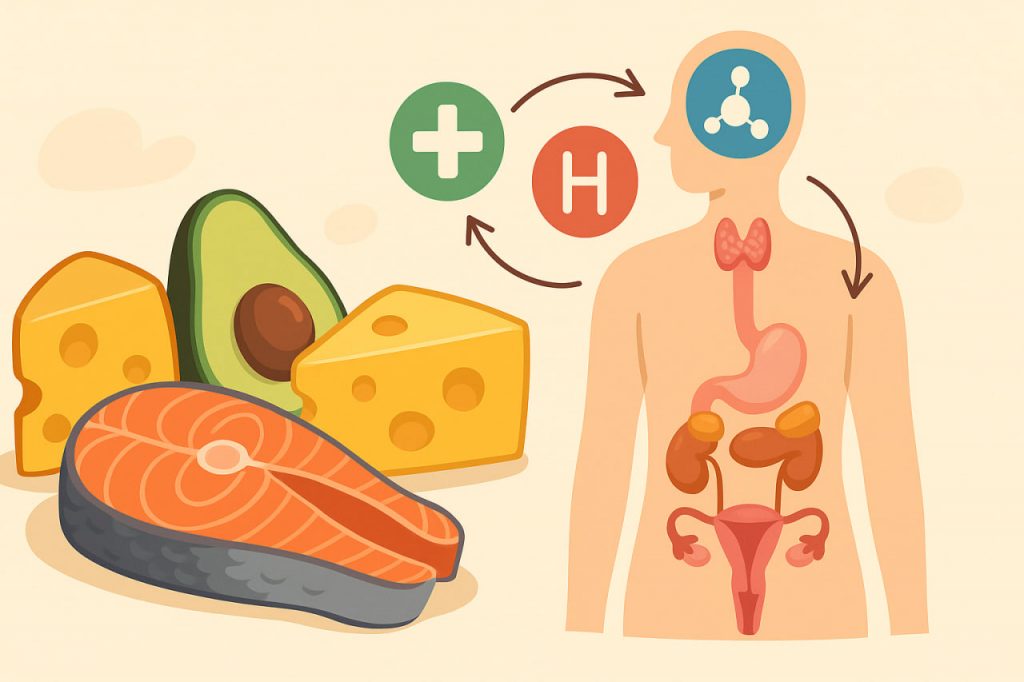Fat plays a vital role in the body, not only as an energy reserve but also as a regulator of key biological processes. One of its most significant but often overlooked functions is its influence on the hormonal system. From metabolism to reproduction and mood regulation, fats interact with endocrine glands and affect the production, transport, and function of hormones. Both the quantity and quality of dietary and body fat can significantly shape hormonal balance, especially when it comes to estrogen, testosterone, insulin, and cortisol levels.
Types of Fat and Hormonal Effects
Not all fats impact the body equally. Saturated fats, typically found in animal products, can increase inflammatory markers and may alter hormone receptor sensitivity. Trans fats, found in processed foods, are linked to disrupted insulin sensitivity and increased belly fat, which contributes to hormonal imbalance. In contrast, unsaturated fats—especially omega-3 fatty acids from sources like fish, flaxseeds, and walnuts—help reduce inflammation and support the production of anti-inflammatory hormones and improve cell membrane health, making hormonal communication more efficient.
Body Fat and Hormone Production
Fat cells, especially in visceral fat (around organs), are not just passive energy stores—they act as endocrine organs. They release signaling molecules like leptin, which influences appetite, and adiponectin, which affects insulin sensitivity. Excessive fat, particularly around the abdomen, contributes to higher levels of estrogen in both men and women. This can disrupt reproductive health and increase risks of hormone-related diseases. Low body fat, on the other hand, may reduce hormone production, especially in women, potentially affecting menstruation and fertility.
Fat Intake and Hormonal Health
Adequate fat intake is essential for the synthesis of steroid hormones, including cortisol, progesterone, estrogen, and testosterone. Diets extremely low in fat may lead to hormonal deficiencies, affecting mood, sleep, libido, and immune function. Including healthy fats from nuts, seeds, oily fish, and olive oil supports endocrine function, particularly during puberty, pregnancy, or aging. Balance is key—neither excessive fat nor extreme fat restriction benefits long-term hormonal health.
Glossary
- Hormones – chemical messengers that regulate biological processes like metabolism, mood, and reproduction.
- Steroid hormones – a group of hormones derived from cholesterol, including sex and stress hormones.
- Visceral fat – fat stored around the internal organs, associated with higher health risks.
- Leptin – a hormone produced by fat cells that regulates hunger and energy balance.
- Omega-3 fatty acids – healthy polyunsaturated fats that support hormonal and brain health.
- Endocrine system – the network of glands and organs that produce and release hormones.


